Editor’s note: Setting up a Magento eCommerce website is similar to building a brick-and-mortar store. You’ll need to hire professionals to create a blueprint for your website, developers to handle the coding, and designers to lay the final touches on your storefront layout. EbizON offers custom Magento ecommerce development services to help store owners discover a unique place in the digital marketplace.
In today’s fast-paced, constantly-evolving digital marketplace, companies must be capable of handling demands and reacting promptly. Doing so will help businesses survive and thrive!
This is where a powerful eCommerce platform, Magento, comes in!
In fact, Magento powers roughly a quarter of all e-commerce websites available on the Internet. However, these numbers are not surprising given that Magento is the most adaptable and feature-rich e-commerce software platform on the market and can be used by almost any type of company.
Why Choose Magento?
Magento is a popular eCommerce platform created and released on March 31, 2008, by Varien. The platform features a built-in PHP developed on Zend Framework.
In 2018, Adobe paid $1.68 billion to acquire this open-source platform, allowing Magento to establish itself in the enterprise market.
Magento is the preferred choice for top eCommerce brands worldwide for the right reasons. The platform offers cutting-edge eCommerce capability, customization, and top-notch performance.
Top Companies Using Magento
1. Jaguar Land Rover
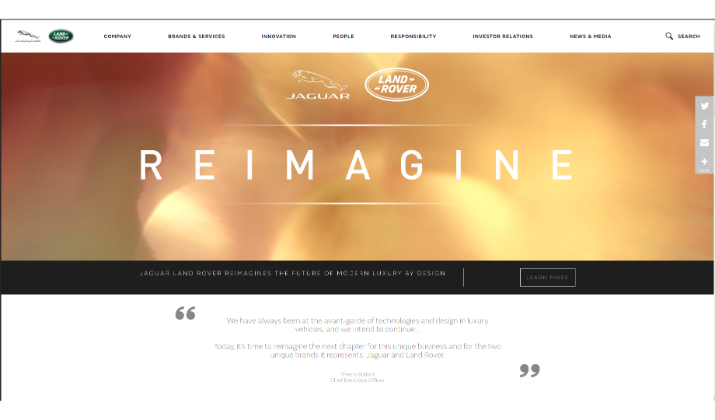
Jaguar Land Rover (JLR) is a British multinational automotive company producing luxury and sport utility vehicles.
This automobile giant has over 39,000 workers and revenue above £23 billion. Through its classic designs, the company aims to strike the right cord with consumers and foster an unmatched intimacy and emotional connection on a global scale.
Land Rover makes excellent use of Magento’s features. It has a stunning yet quick-loading website that offers numerous specials and enables customers to track orders, handle refunds, and make purchases online.
Fans and customers who want to purchase branded clothing, accessories, and collectibles can do so on Land Rover’s retail website, which Magento powers. Additionally, it has a separate Magento-based store where all of the brand’s automobile accessories are sold.
2. Nike
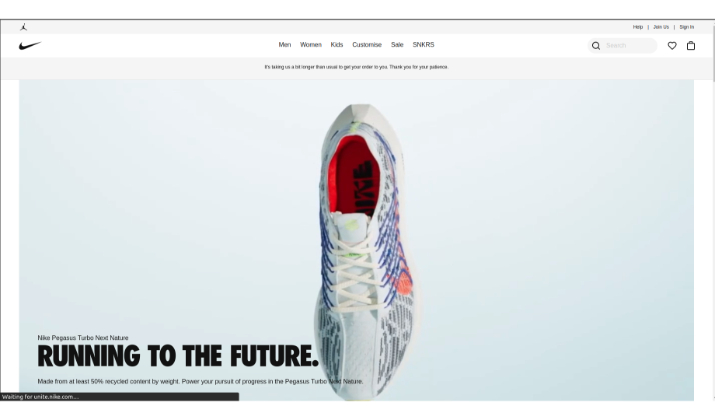
Nike needs no introduction! It is the biggest global producer of sporting goods like athletic shoes, clothing, t-shirts, and other sporting goods.
The brand opted for the Magento platform to build its online store. Nike has also integrated numerous Magento tools; for instance, Magento’s product customization tool allows customers to design their own products, such as shoes and t-shirts.
Every time a customer selects or modifies one or more product attributes, the product’s image changes to reflect their selection. This technology ensures a smooth performance and delivers customers an engaging and dynamic experience.
3. Olympus
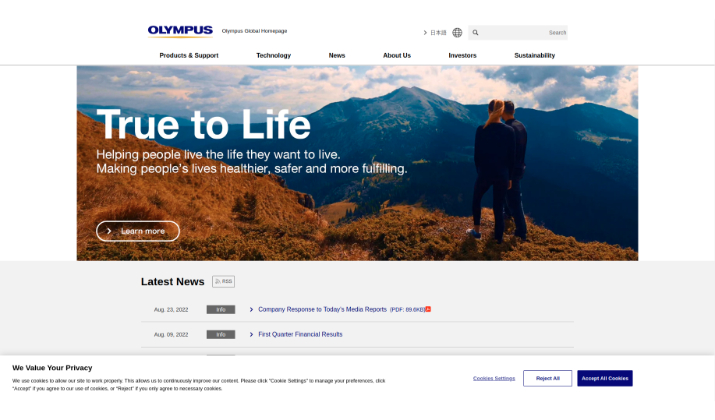
The Japanese company Olympus has been creating cutting-edge technological solutions that benefit society since 1919. It is best known for its cameras but also produces and sells medical, industrial, and audio goods.
Over the years, Olympus has developed a reputation for making chic, very compact cameras that can capture some of the highest-quality photographs in the business. The company now occupies approximately 70% share of the global endoscope market.
Olympus uses Magento to power its user-friendly website, which supports yearly retail sales up to millions of dollars. It also uses Magento’s multilanguage functionality, allowing users to select their location and language when viewing its website.
Additionally, Olympus efficiently uses Magento’s promotional features by providing weekly specials and free shipping offers for purchases over a certain threshold.
4. Tommy Hilfiger

Tommy Hilfiger is another popular brand joining the long list of biggest companies leveraging Magento. Established in 1985, this American clothing giant produces upscale clothing, accessories, fragrances, and footwear. Besides, it has a solid reputation for building stylish goods using premium materials.
Considering the company’s presence in over 100 countries, it chose Magento Commerce to support its operations in Australia and New Zealand. The brand’s website efficiently leverages Magento’s promotional features to provide free delivery for orders over $100 and $50 off for every $150 spent.
In addition, Tommy Hilfiger utilizes Magento’s Gift Card feature, enabling its consumers to purchase virtual gift cards redeemable against online purchases. Moreover, its customer loyalty program entitles users to 10% off purchases made through its website.
5. Coca Cola

The Coca-Cola Company (Coca-Cola), a household name worldwide, requires no introduction. It was established in 1892 and had its corporate headquarters in Atlanta, Georgia. It is best known for the soft drink that bears its name: Coca-Cola.
Coca-Cola operates a Magento 2 website, selling everything from Coca-Cola bottles to clothing, accessories, and souvenirs for its fandom. Coca-Cola has a century-old reputation and a devoted fan base worldwide.
By allowing users to add their names to clothing and soft drink bottles, Magento assists Coca-Cola in giving its customers the choice to customize products. Additionally, it enables Coca-Cola to link its website to its dealer network and offer a rewards program that enables customers to receive a free soft drink after making a fixed purchase from Coca-Cola vending machines.
6. Cox & Cox
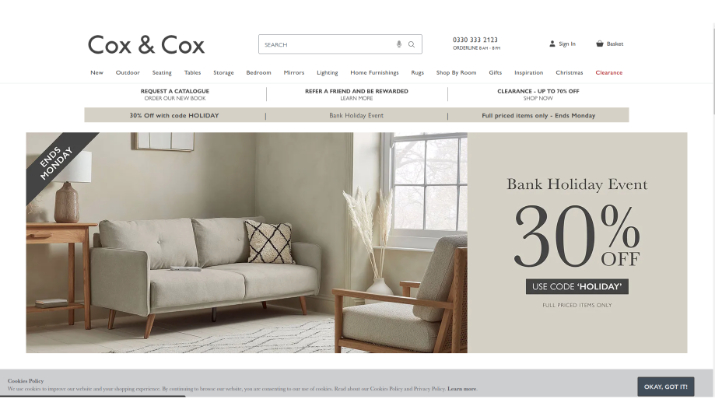
Cox & Cox is a leading homeware company headquartered in Frome, Somerset, UK. The established retailer specializes in unique, hand-selected goods you won’t find anywhere else. Each Cox & Cox item is carefully chosen for particular consumers who want to furnish their homes with style and flair, emphasizing timelessly elegant design.
In 2017, Cox & Cox decided to re-platform from Magento 1 to Magento 2, or more specifically, Magento Commerce. After several years of successfully using the Magento eCommerce platform, Cox & Cox has worked around Magento to adopt a unique solution for their businesses while incorporating order fulfillment, customer management, purchasing, and several other components.
7. Nestle Nespresso
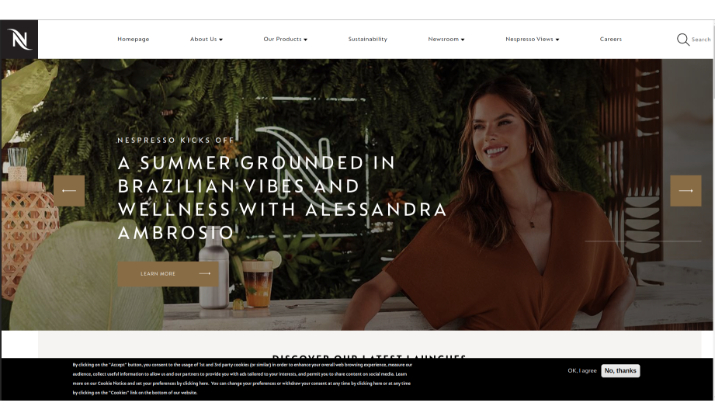
Almost no one who consumes coffee has never heard of the Nestle corporation. One of the world’s largest food and beverage companies, it is well-known for its coffee brand, Nescafe.
Nestle Nespresso began utilizing Magento for their online store in 2009. The company aimed to develop a website to improve client experience and boost conversion rates. In this Magento store, users can get high-quality coffee makers in addition to recognized coffee beans. This website’s mobile version is equally excellent; it is quite fascinating, easy to use, and intuitive.
8. AsusTek Computer
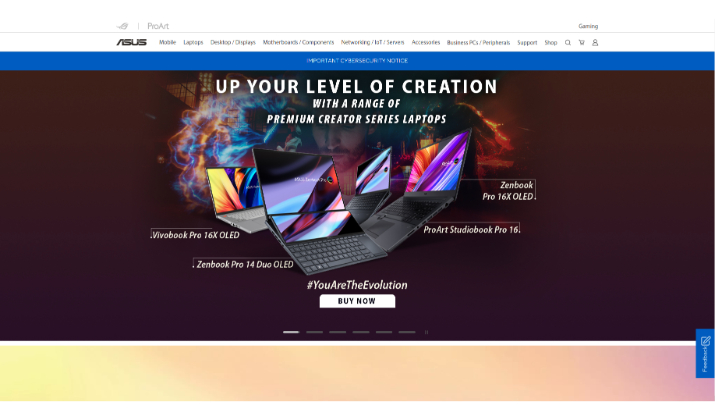
ASUS derives its name from “Pegasus,” a winged horse from Greek mythology representing wisdom and understanding. Since its inception in 1989, their team has embodied this legendary creature’s spirit of exploration and has reached new heights with each ground-breaking device they create.
ASUS was a key player in the development of the Taiwanese IT sector, going from an underappreciated newcomer to a world-renowned technology behemoth with over 12,500 employees and more than 1,400 accolades.
Through a single platform, Asus aimed to improve its brand’s presence across the customer journey, expedite tracking of product purchases, and streamline distribution. The company chose Magento Commerce for its robust B2B and B2C features that can be achieved with just one backend website.
They could optimize their back-office procedures by integrating Magento features with ASUS’ centralized systems. The data backs their decision to adopt Magento: PC shipments increased to 274 million units, a 4.8 percent increase from 2019; and PC gaming, fueled by 1.3 billion players, increased to an estimated $36.9 billion, up 4.8 percent annually.
9. The Wilson Sporting Goods Company
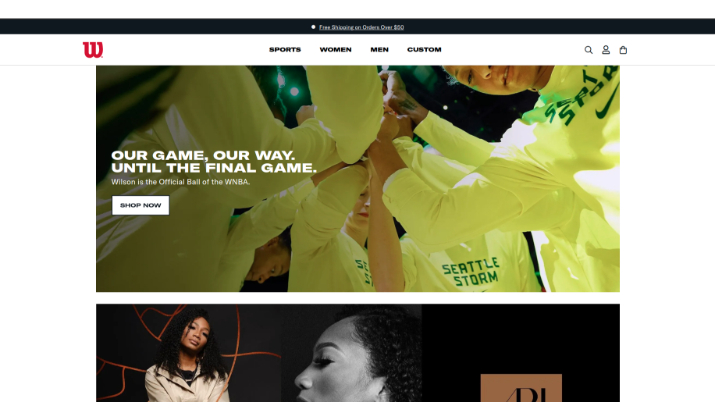
Founded over a century ago, Wilson Sporting Goods Co. has been at the forefront of sports equipment innovation. It continues to set the standard for highly customizable, socially shareable, and digitally connected products. These products are used by professional athletes as well as regular enthusiasts.
The company offers an option for customers to select their location on its website to view products according to their country, thereby offering multiregional assistance. Besides, Wilson Sporting Goods Co. uses the Magento promotional tools to good effect and offers numerous discount programs and an affiliate network.
Furthermore, the company handles return requests through its website and lets buyers modify things before purchasing. What’s more, Wilson gives its customers eGift cards that can be redeemed for online purchases using Magento’s gift cards feature.
10. Harvey Norman Holdings
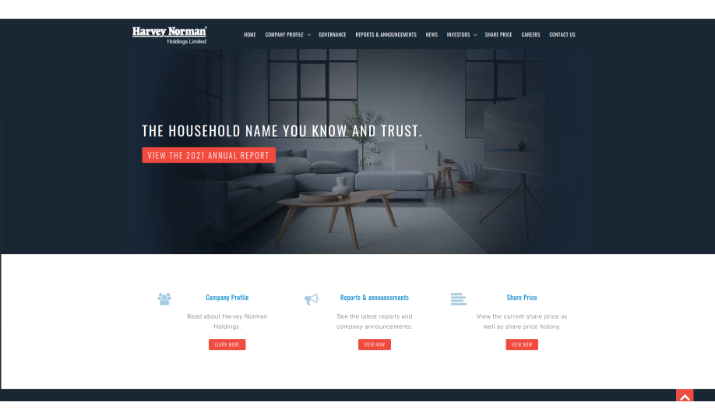
Based in Australia, Harvey Norman Holdings is a leading multi-national retailer of consumer electrical goods, computers, furniture, and bedding. The company, founded in 1982, has its headquarters in Homebush, NSW, Australia.
Harvey Norman offers a variety of brands under one roof and sells goods to people from all walks of life, including school-age kids, homeowners, and businesses.
In order to offer customer-specific catalog and pricing for B2B business, Harvey Norman Business and Enterprise looked for a solution.
This large Australian-based retail company is one of the biggest companies using Magento in terms of catalog size. The catalog contains thousands of items, making it one of Australia’s largest Magento retailers.
To Sum Up
As you can see, most successful global brands prefer Magento for their eCommerce business, and why not? This robust platform powers over 300,000 active eCommerce stores on the Internet. Besides, Magento offers flexibility in designing unique themes and features, depending on your business requirements. However, ensure you identify certain industry standards while setting up or optimizing your eCommerce website. Doing this will help you match or outperform your competitors in the digital marketplace.